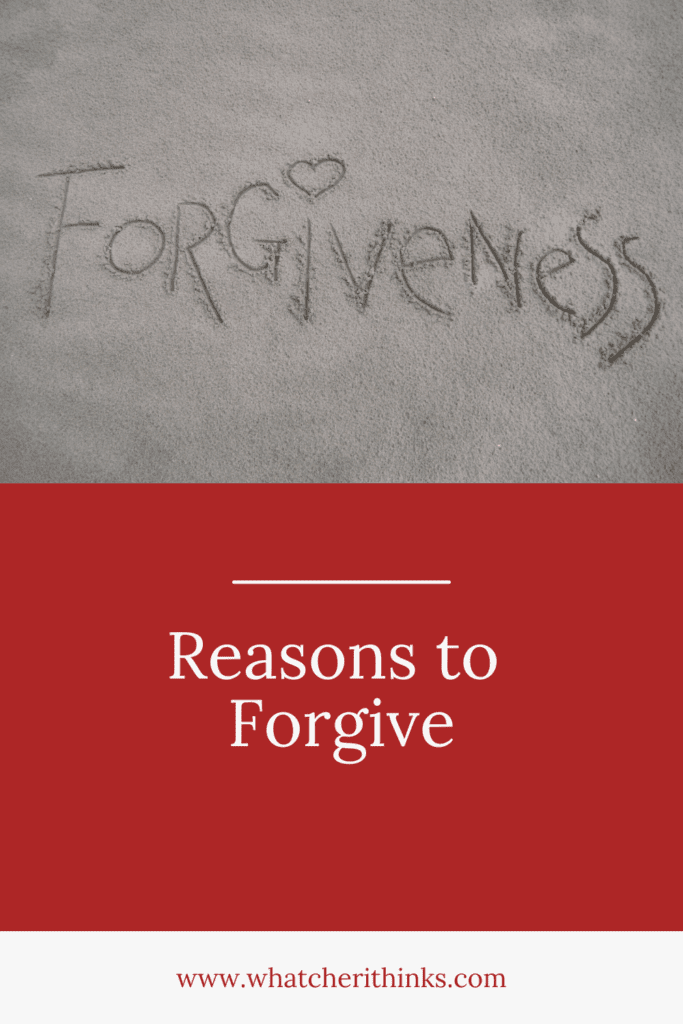Discover How to Forgive Someone and Find Peace in Your Heart
Recognizing the Relevance of Mercy in Recovery Relationships
Forgiveness is frequently viewed as a simple act of allowing go, yet its importance in healing relationships expands far past plain absolution. What stays to be revealed is the extensive impact mercy can have on specific growth and communal harmony.
The Definition of Mercy
Although forgiveness is often perceived as a straightforward act of releasing, its interpretation includes an intricate interaction of psychological and mental procedures. At its core, forgiveness is the conscious decision to launch sensations of resentment or revenge towards an individual or group that has actually caused harm. This procedure is not just about discharging the culprit; instead, it involves a profound psychological improvement that can cause personal growth and recovery.
Mercy is diverse, commonly defined by an individual's internal battle to resolve their discomfort with the desire for tranquility. It needs acknowledging the wrongs dedicated, refining the linked feelings, and eventually making a choice to progress without the concern of displeasure. This selection commonly requires a cognitive change, where one reframes their understanding of the transgression and the wrongdoer, permitting compassion and recognizing to emerge.
Significantly, mercy does not suggest excusing the behavior or neglecting the crime; it is an intentional act that prioritizes emotional well-being. By specifying forgiveness in this fashion, we can value its duty in promoting much healthier relationships and fostering psychological resilience, establishing the phase for deeper exploration into its advantages.
Psychological Advantages of Mercy
Forgiveness provides substantial psychological benefits that can profoundly affect an individual's psychological wellness and total health. When an individual selects to forgive, they actively release sensations of bitterness, rage, and resentment, which can or else produce a hefty psychological burden. This release commonly leads to a reduction in anxiety and anxiousness, promoting a sense of tranquility and psychological security.
In addition, mercy fosters a raised capacity for compassion and compassion. By comprehending the perspective of the wrongdoer, people can grow a much deeper psychological durability, which boosts their capability to deal with future challenges. This procedure not only boosts psychological guideline yet additionally adds to an extra favorable outlook on life.
Additionally, forgiving others can reinforce one's self-confidence and self-worth. It allows people to redeem their personal power, damaging complimentary from the adverse cycles of victimhood - The importance of forgiveness. This newfound empowerment can lead to much healthier psychological feedbacks and more powerful social relationships
Mercy vs. Settlement
The distinction between forgiveness and reconciliation is essential in recognizing the characteristics of healing partnerships. Mercy is an internal process in which an individual picks to let go of advice resentment and adverse sensations towards someone that has actually created damage. It is mostly an individual trip, concentrated on emotional release and self-healing, allowing one to move on without bring the problem of previous grievances.
In comparison, settlement entails rebuilding and restoring the relationship to a state of trust and common regard. This procedure usually requires open communication, active involvement from both celebrations, and a commitment to dealing with the underlying try this concerns that brought about the problem. While mercy can happen independently, reconciliation demands the determination of both individuals to participate in discussion and pursue a common understanding.
It is vital to note that forgiveness does not always lead to settlement. An individual might forgive an additional without deciding to recover the partnership, especially if depend on has been irrevocably harmed or if the partnership is regarded unhealthy. Comprehending this distinction permits people to navigate their feelings effectively and make informed decisions concerning their partnerships.
Actions to Grow Forgiveness
Cultivating mercy is a purposeful process that entails numerous crucial actions targeted at helping with psychological recovery. The very first step is acknowledging the discomfort triggered by the offense. Recognizing one's sensations is essential, as it allows people to refine their emotions really.
Following, assessing the occurrence and comprehending its impact can offer quality. This representation must include analyzing the motivations behind the offender's actions and acknowledging that every person is imperfect.
The third action entails making an aware choice to forgive. This choice is vital, as it symbolizes a readiness to let go of resentment and progress.
Ultimately, expressing feelings in a positive way can be advantageous - The importance of forgiveness. Whether via journaling, talking with a relied on pal, or looking for therapy, expression of emotions can aid in the forgiveness trip
Real-Life Examples of Forgiveness

In another example, a close-knit team of good friends encountered a considerable break after one participant accidentally shared an exclusive trick. Rather than harboring bitterness, the influenced close friend determined to forgive, recognizing the importance of valuing the friendship over the error. This decision encouraged open dialogue and inevitably enhanced their connection.

Final Thought
In final thought, mercy plays a pivotal function in the recovery of partnerships by promoting the release of adverse feelings and fostering compassion. By distinguishing between mercy and settlement, people can engage in a useful this content procedure that improves psychological well-being.
